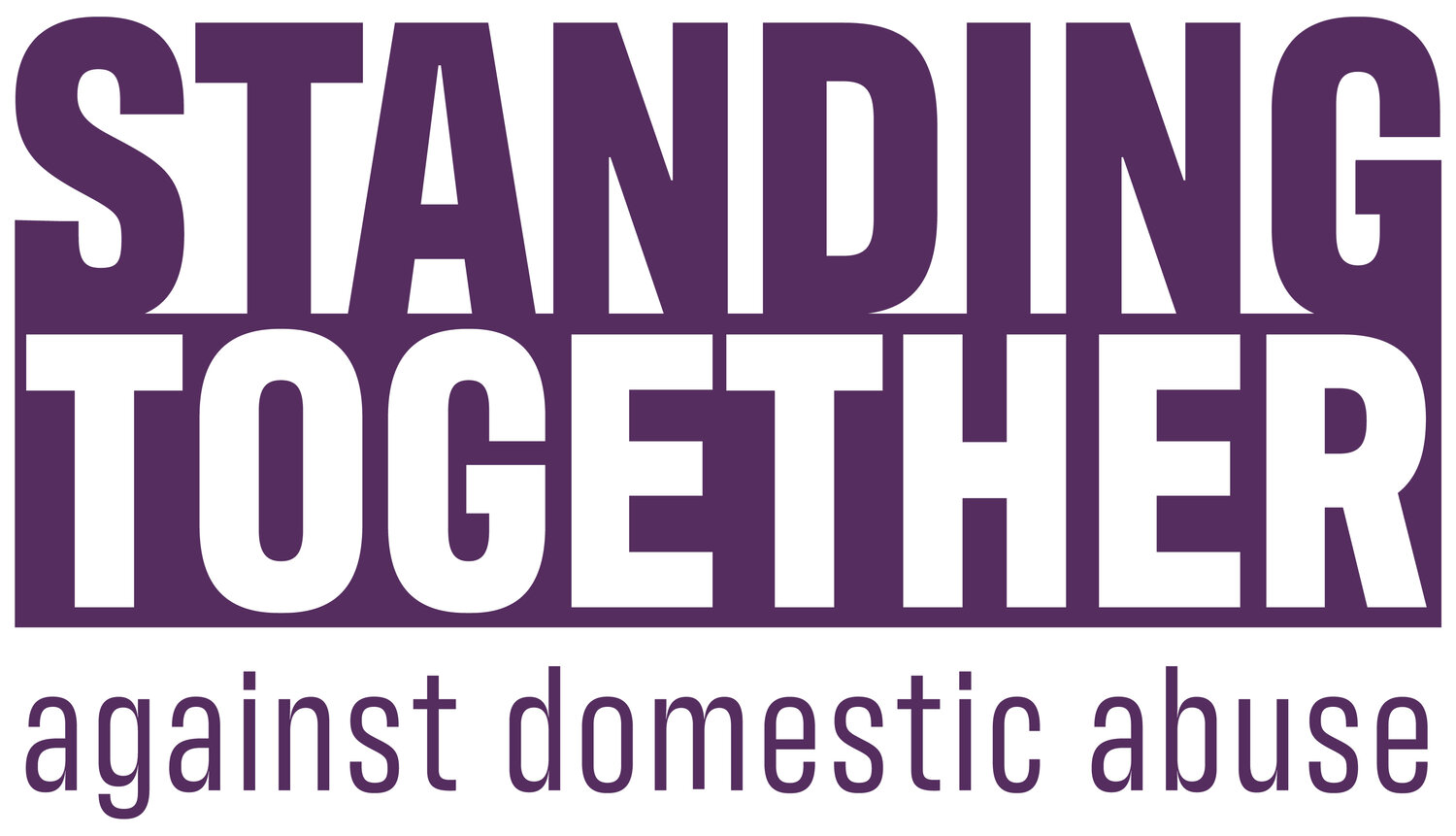Empowering Professionals to Better Support Victim/Survivors: Why Domestic Abuse Training is Essential
This blog has been written by our Training Team at Standing Together Against Domestic Abuse.
At Standing Together Against Domestic Abuse, we the Training Team work closely with professionals across a wide range of sectors – from health and housing to social care, criminal justice, and beyond. What we know, from decades of work within the Violence Against Women and Girls (VAWG) sector, is that training isn’t just a professional development tool – it’s a life-saving intervention.
The statistics speak for themselves. According to the Office for National Statistics (ONS), 2.1 million people in England and Wales experienced domestic abuse in the year ending March 2023, with women disproportionately affected. Yet, SafeLives research shows that on average, victims experience abuse for almost three years and seek help from multiple services before receiving effective support.
This delay isn’t because professionals don’t care – it’s because they often lack the skills and confidence to identify abuse, ask the right questions, and respond safely. That’s where we come in.
How Training Transforms Responses
Through our training programmes, we equip professionals with the tools to:
Recognise the full spectrum of domestic abuse, including coercive control, economic abuse, and tech-enabled abuse – forms of harm that are often overlooked.
Understand trauma-informed approaches, ensuring that when someone discloses, they are met with empathy, belief, and practical support.
Navigate safeguarding and referral pathways, including when and how to refer to specialist services like MARAC (Multi-Agency Risk Assessment Conferences) and Independent Domestic Violence Advisors (IDVAs).
Build confidence in multi-agency working, so professionals can collaborate effectively to reduce risk and improve outcomes for victim-survivors and their children.
Evidence Matters – Training Backed by Research
Research consistently highlights the impact of high-quality domestic abuse training. Studies published in the Journal of Interpersonal Violence demonstrate that training healthcare professionals alone increased domestic abuse identification rates by 30%.
Closer to home, Standing Together’s own learning from Domestic Homicide Reviews (DHRs) and Safeguarding Adults Reviews (SARs) consistently shows that missed opportunities to recognise and respond to abuse can have devastating consequences. Embedding domestic abuse training across all sectors ensures that every professional who may come into contact with a victim-survivor has the knowledge and tools to respond safely and effectively.
This is particularly evident in health settings. Standing Together’s work embedding hospital-based IDVA services within maternity units has resulted in earlier disclosures and improved safety planning for pregnant victims, demonstrating how sector-specific training and integrated support can proactively identify risk and intervene much sooner.
Our Approach – Whole-System Training
At Standing Together, we advocate for whole-system responses. This means we don’t just train individuals – we work with whole organisations and partnerships, helping to embed domestic abuse awareness, policy, and practice at every level.
Our training supports professionals at all stages – from frontline staff to senior leadership.
We tailor our content to the specific challenges and roles within health, housing, social care, criminal justice, and voluntary sectors.
We prioritise the voices of survivors, ensuring that lived experience informs every aspect of our training delivery.
Resources and Recommendations
If you’re looking to enhance your organisation’s response to domestic abuse, we recommend:
Standing Together Training Programmes – Specialist courses covering domestic abuse awareness, risk assessment, and multi-agency responses.
IRIS and ADViSE – Specialist training and support for general practice teams and sexual health clinical teams.
Karma Nivarna - Specialist training both face-to-face and online for frontline practitioners and anyone whom would like to learn and/or increase their awareness of Honor Based Abuse.
Respect - Specialist training for professionals working with perpetrators of abuse.
A Call to Action
Training isn’t optional – it’s essential. The more professionals understand about domestic abuse, the better placed they are to spot the signs, ask the right questions, and take action that saves lives.
At Standing Together, we believe in the power of training to create safer systems and stronger communities, where victim-survivors are heard, believed, and supported every step of the way.
For more information about our training offers, please visit https://daha.arlo.co/w/ or contact us directly at daha_training@standingtogether.org.uk
Sources
Office for National Statistics (ONS) - Domestic abuse prevalence and trends, England and Wales (2023)
https://www.ons.gov.uk/peoplepopulationandcommunity/crimeandjustice/bulletins/domesticabuseinenglandandwales/yearendingmarch2023SafeLives – A Cry for Health: Why we must invest in domestic abuse training for health professionals (2016)
https://safelives.org.uk/sites/default/files/resources/A%20Cry%20for%20Health%20full%20report.pdfStanding Together Against Domestic Abuse – Learning from Domestic Homicide Reviews
https://www.standingtogether.org.uk/our-impact/learning-and-resources/dhrsJournal of Interpersonal Violence - The Impact of Domestic Violence Training for Healthcare Providers (2018)
https://journals.sagepub.com/doi/10.1177/0886260518767781IRISi – Improving the healthcare response to Gender-Based Violence https://irisi.org/
Standing Together – Insights into Hospital-Based IDVA Services in Maternity Units
https://www.standingtogether.org.uk/our-work/healthKarma Nivarna - Training & Learning – Karma Nirvana
Respect - Training | Respect
